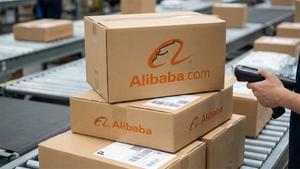VANCOUVER, BC / ACCESSWIRE / April 5, 2023 / Torq Resources Inc. (TSX-V:TORQ)(OTCQX:TRBMF) ("Torq" or the "Company") is pleased to announce the results of its recently completed soil geochemical survey focused on identifying new gold and gold-copper targets at Torq's Margarita Iron-Oxide-Copper-Gold project located in northern Chile, 65 kilometres to the north of the city of Copiapo (Figure 1). Extensive leaching of copper within the top 20 - 30 metres (m) from surface was observed in the drill results from the Falla 13 discovery, leading the Company to conduct a multi-element soil geochemistry survey across the project area, primarily to identify gold anomalies as a proxy for copper-gold mineralization. The results of this survey have identified targets adjacent to the Falla 13 discovery area that demonstrate its potential for growth as well as five new target areas that have not yet been drill tested (Figure 2). The Company is planning for a third phase of drilling at the project to test the various targets. The program is expected to commence in Q3 of this year.
A Message from Michael Henrichsen, Chief Geological Officer:
"We are very pleased with the results from our gold and multi-element soil geochemistry grid, as it has delineated clear target areas across the project for our next drill program. The gold results from the untested Remolino and Cototuda targets have reaffirmed their potential and the new gold anomalies delineated in the northern portion of the project near our Falla 13 discovery have demonstrated the potential to define a significant IOCG system at the project."
Falla 13 Discovery Expansion Targets:
The Falla 13 discovery on the Margarita project includes intercepts of 90 m of 0.94% copper and 0.84 g/t gold (22MAR-013R) and 98 m of 0.68% copper and 0.94 g/t gold (22MAR-014R) within a defined 800 m long mineralized body. The results of the phase two drill programs demonstrated that the mineralized system is open along strike to the north-northwest, with the most northerly drill hole, 22MAR-022R, intersecting 48 m of 0.37 g/t gold and 0.26% copper (including 20 m of 0.47 g/t gold and 0.35% copper). Gold geochemistry results have supported the potential to expand mineralization along strike to the north-northwest by 500 m, with gold values observed to the north being comparable to those observed over the Falla 13 discovery (Figure 3).
The Company believes there is the potential for flat lying Manto-style mineralization immediately to the west of the Falla 13 discovery area, where drilling and mapping have defined a mineralized permeable contact horizon between the volcanics and intrusives, located at a depth of approximately 100 m (Figure 4). In this case, the sub-vertical Falla 13 structure acts as a feeder where ascending mineralized hydrothermal fluids can flow laterally along the permeable contact between the volcanics and intrusives, demonstrating the potential to extend the known mineralization considerably. In addition, a second parallel structure has been recognized 300 m to the east of Falla 13 structural corridor. Gold geochemistry results from the parallel structure are consistent with results observed along the Falla 13 discovery and provide a 500 m long north-northwest oriented target that is undrilled (Figure 3). Finally, the west-northwest structures that link the two parallel structures are all deemed to be targets, with drill hole 22MAR-023 intersecting 130 m of 0.36 g/t gold and 0.28% copper (including 30 m of 1.02 g/t gold and 0.57% copper) across one of the west-northwest oriented structures.
Undrilled Targets:
The gold geochemistry results have delineated five target areas that have not been drill tested. The highest priority target is the Remolino target, which is characterized by a 1,300 m x 200 m gold-in-soils anomaly that coincides with a magnetic, conductivity and chargeability highs (Figures 5 - 7). The Remolino target is located along a prominent west-northwest trending structural corridor along the southern margin of the Remolino dome complex, with soil values of up to 1.89 g/t gold, including seven samples along the anomaly that were above 0.1 g/t gold. These samples represent some of the highest soil values from across the property and geophysical responses are similar to what has been observed at the Falla 13 discovery, demonstrating that the Remolino target has strong discovery potential.
The Margarita North, Cototuda and target areas in the southern half of the property have produced robust gold-in-soil anomalies that the Company believes require drill testing. The Margarita North target area is characterized by a 500 m by 100 m gold-in-soils anomaly that is situated at the intersection of the north-northeast trending Margarita structural corridor and the west-northwest trending Remolino structural corridor (Figure 2). The Margarita North target is located to the north and along strike from the historical 1990's exploration that encountered copper oxide mineralization and the Company believes that this target has the potential to represent a sulphide source to that mineralization. The Cototuda target was delineated by a gold-in-soils anomaly measuring approximately 500 m by 300 m and is associated with diorite and monzodiorite porphyry bodies. The geophysical signature from the Cototuda target is similar to that of the Falla 13 discovery and the Remolino target area in that it is characterized by magnetic and conductivity highs (Figures 5 - 6).
Two prominent gold-in-soil anomalies have been identified in the northern third of the project within areas of generally poor outcrop exposure. These anomalies are currently considered early-stage and therefore the Company plans to conduct additional mapping in order to advance them to drill stage.
The anomaly in the northwest area of the project, known as the Meteorological Station target, has a dimension of approximately 600 m by 350 m and is associated with mapped rhyodacitic-hematite-silica-breccia bodies that are commonly mapped at the contact between volcanic rocks and underlying intrusives (Figure 2). This target area is associated with magnetic, conductivity and chargeability highs, giving it similar geophysical and geological characteristics as the Falla 13 discovery (Figures 2, 5 - 7). The anomaly is contained within a structural block, bound by both north-northwest trending and west-northwest trending faults with mapped flat-lying breccia bodies that indicate the potential to host flat-lying manto-style mineralization.
The anomaly in the northeast area of the project is approximately 700 m by 450 m in dimension and is hosted in an area that is characterized by rhyodacitic, quartz-feldspar porphyries and rhyodacitic-hematite-silica-breccia bodies (Figure 2). The anomaly is bound by two north-northwest structures, representing a similar structural setting as the Falla 13 discovery, and is characterized by a strong north-northwest trending conductive anomaly with moderate chargeability. This early-stage target requires additional geologic mapping to determine the potential geometries of mineralization, with the aim of advancing to drill stage in the coming months.

Figure 1: Illustrates the location of the Margarita project within the Coastal Cordillera belt and its proximity to major deposits in the region.

Figure 2: Illustrates newly identified targets based on gold-in-soils geochemistry across the property. Gold geochemistry results have demonstrated the potential for growth at the Falla 13 discovery, both along strike to the north-northwest as well as along a parallel structure to the east. In addition, five undrilled anomalies were defined across the project area, which will also be a focus for the planned upcoming drill program that is expected to commence in Q3 of 2023.

Figure 3: Illustrates a close-up view of the gold-in-soil results at the Falla 13 discovery area. The gold geochemistry demonstrates the potential to extend the mineralization by 500 m to the north-northwest along the Falla 13 structural corridor. In addition, a parallel structure identified 300 m to the east of the discovery provides a 500 m long target.

Figure 4: Illustrates a cross-section of the Falla 13 discovery and the potential for flat lying manto-style mineralization to the west of the defined mineralization along the permeable and well-mineralized contact between the volcanics and intrusives at shallow depths.

Figure 5: Illustrates a target summary from across the project area based on magnetic anomalies and gold-in-soils geochemistry data. Note that the magnetic high anomalies are highlighted by the colour red.

Figure 6: Illustrates a target summary from across the project area based on resistivity and gold-in-soils geochemistry data. Note that conductive anomalies are highlighted by the colour purple, indicating the potential for hydrothermal alteration.

Figure 7: Illustrates a target summary from across the project area based on chargeability and gold-in-soils geochemistry data. Note that chargeability anomalies are highlighted by the colours red through purple, indicating the potential for sulphide mineralization.
Michael Henrichsen (Chief Geological Officer), P.Geo is the QP who assumes responsibility for the technical contents of this press release.
ON BEHALF OF THE BOARD,
Shawn Wallace
CEO & Chair
For further information on Torq Resources, please visit www.torqresources.com or contact Natasha Frakes, VP, Communications, at (778) 729-0500 or info@torqresources.com.
About Torq Resources
Torq is a Vancouver-based copper and gold exploration company with a portfolio of premium holdings in Chile. The Company is establishing itself as a leader of new exploration in prominent mining belts, guided by responsible, respectful and sustainable practices. The Company was built by a management team with prior success in monetizing exploration assets and its specialized technical team is recognized for their extensive experience working with major mining companies, supported by robust safety standards and technical proficiency. The technical team includes Chile-based geologists with invaluable local expertise and a noteworthy track record for major discovery in the country. Torq is committed to operating at the highest standards of applicable environmental, social and governance practices in the pursuit of a landmark discovery. For more information, visit www.torqresources.com.
Soil Sampling Program
Approximately 1-2 kg of soil material was collected on a 100 m x 100 m grid and sent to ALS Lab in Copiapó, Chile or La Serena, Chile for preparation and then to Santiago, Chile and Lima, Peru for analysis. All samples are assayed using 30 g nominal weight fire assay with AAS finish (Au-AA23) and multi-element four acid digest ICP-AES/ICP-MS method (ME-MS61). QA/QC programs for 2022-23 soil samples using internal standard samples and duplicates, lab duplicates, standards and blanks indicate good accuracy and precision in a large majority of standards assayed.
Forward Looking Information
This release includes certain statements that may be deemed "forward-looking statements". Forward-looking information is information in this release that relates to expectations relating to any future exploration programs. These statements involve known and unknown risks, uncertainties and other factors which may cause actual results, performance or achievements of the Company to be materially different (either positively or negatively) from any future results, performance or achievements expressed or implied by some of the principal forward-looking statements. See Torq's Annual Information Form filed March 27, 2023 at www.sedar.com for disclosure of the risks and uncertainties faced in this business.
Neither the TSX Venture Exchange nor its Regulation Services Provider (as that term is defined in the policies of the TSX Venture Exchange) accepts responsibility for the adequacy or accuracy of this release.
SOURCE: Torq Resources Inc.
View source version on accesswire.com:
https://www.accesswire.com/747730/Torq-Defines-Multiple-New-Targets-Based-on-Gold-Geochemical-Results-at-the-Margarita-Iron-Oxide-Copper-Gold-Project





